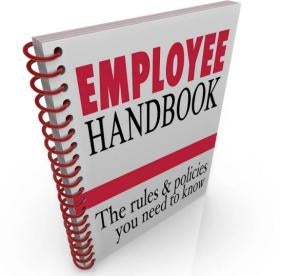On April 29, 2016, the National Labor Relations Board deemed several handbook policies overbroad because employees could “reasonably construe the language [of the policy] to prohibit Section 7 rights” under the National Labor Relations Act. Most notably, the Board took exception to a “Positivity Policy” in an employment handbook stating:
"The Company expects all employees to behave in a professional manner that promotes efficiency, productivity, and cooperation. Employees are expected to maintain a positive work environment by communicating in a manner that is conducive to effective working relationships with internal and external customers, clients, co-workers, and management."
In light of this ruling, employers should consider revising any “positivity” provisions in employment handbooks.
The Board ruled the undefined phrases "positive work environment" and "communicating in a manner that is conducive to effective working relationships" violate the Act to the extent they are ambiguous and vague, and reasonably chill employees’ exercise of Section 7 rights. In support of its decision, the Board stated:
"Because labor disputes and union organizing efforts frequently involve controversy, criticism of the employer, arguments, and less-than-'positive' statements about terms and conditions of employment, employees reading the rule here would reasonably steer clear of a range of potentially controversial but protected communication in the workplace for fear of running afoul of the rule."
Additionally, the Board deemed overbroad a rule prohibiting employees from recording “people or confidential information using cameras, camera phones/devices, or recording devices (audio or video) in the workplace” and (with the exception of calls that the company records for quality purposes) prohibiting employees from making “sound recordings of work-related or workplace discussions.” The Board determined the workplace recording rule failed to distinguish between recordings protected by Section 7 and those that are not; and did not exclude recordings made on nonworking time, in nonworking areas. Employee recording policies must be carefully drawn to survive present NLRB scrutiny.
The NLRB continues to scrutinize and strike down handbook policies it considers “overbroad.” Accordingly, union and non-union employers should audit their policies to ensure that they are not setting vague standards of a “positive work environment” or requiring only “positive attitudes and communications.”




 i
i

